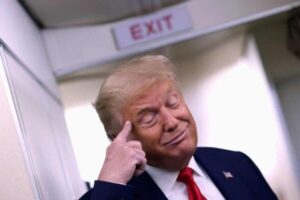[ad_1]
The percentages are stacked towards many Chinese language electrical car (E.V.) corporations. And but they preserve hanging on.
A decline in federal authorities subsidies, tariffs from overseas, intense value competitors, and waning demand ought to have led to a consolidated Chinese language E.V. market. However native governments have used incentives to maintain half-dead E.V. corporations from shuttering, and in some circumstances, even revived lifeless ones.
Such Chinese language E.V. producers have benefited vastly from large industrial coverage help from the federal government. A mix of “beneficiant authorities subsidies, tax breaks, procurement contracts, and different coverage incentives,” as specified by the MIT Know-how Assessment, helped create the dominant E.V. market China has right now. In simply the Chinese language home market, for instance, E.V. possession reached 13.1 million in 2022, accounting for 60 p.c of worldwide gross sales.
China’s business dominance, nonetheless, has raised eyebrows amongst many legislators within the U.S. and European Union, who see China as a risk to their manufacturing sectors. In response, China has steadily phased out many types of subsidies. In keeping with estimates from the Heart for Strategic and Worldwide Research (CSIS), subsidies per car dropped practically 66 p.c between 2018 and 2023.
And but most Chinese language E.V. firms are nonetheless reliant on subsidies. As company earnings stories present, solely BYD Auto has managed to make a revenue.
It’s troublesome to measure the precise scope of native coverage intervention within the E.V. market, however some localities like Shanghai, Shenzhen, and the Changping District in Beijing have created modest rebate packages starting from 1,000 to 10,000 yuan per car. And due to how troublesome it may be to close down firms in China, typically bribes are mandatory to pressure a small agency to shut. China can be implementing an initiative centered round creating “new productive forces” that has empowered provincial governments to revive native E.V. producers so as to increase their “high-income workforce, which might then drive consumption,” in line with Bloomberg.
As a result of many subsidies offered by the Chinese language authorities go on to customers, potential middlemen like provinces have traditionally been excluded from entry. Now, nonetheless, native governments have efficiently inserted themselves into the E.V. enterprise by organising funds and funding autos to funnel cash into E.V. firms.
“Relying on how they’re arrange, these funds and funding autos may take out loans from banks, promote bonds, or elevate cash from traders,” author and researcher G.A. Donovan, who authored a current paper on the topic, tells Purpose. “Funds from greater ranges of presidency additionally trickle all the way down to localities for every kind of functions.”
One outstanding instance is the jap metropolis of Hefei, which invested 5 billion yuan into NIO Inc.’s E.V. enterprise. Due to this, NIO moved its headquarters to Hefei and went from initially outsourcing manufacturing to a Hefei-based producer to taking possession of the plant and including specialised manufacturing, analysis and improvement amenities, and increasing its subscription service for replaceable batteries, in line with CSIS.
Not all of NIO’s fundraising has come from native governments, as Donovan explains. Chinese language corporations have taken up Silicon Valley–like strategies of elevating capital from “capital markets, sovereign wealth funds, and personal fairness and enterprise capital traders.” NIO and its friends, nonetheless, proceed to bleed losses of round $6 billion, an quantity that many traders deemed insupportable, inflicting NIO’s inventory value to fall greater than 90 p.c.
Thankfully for them, the Wuhan municipal authorities fund has invested over $200 million in NIO’s battery administration subsidiary, serving to them briefly halt the free fall.
[ad_2]





